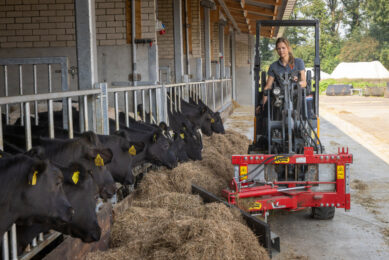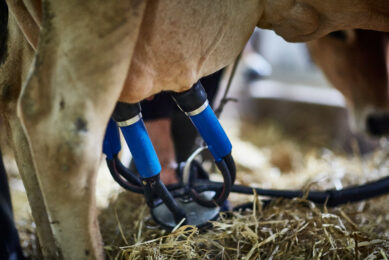Milk not the cause of higher cholesterol levels

New research has found that drinking milk regularly is not associated with increasing levels of cholesterol which is good news for the dairy industry.
This has always been quite a controversial subject regarding milk consumption and one the researchers wanted to investigate. The study of 2 million people was conducted at the University of Reading in the UK and was published in the International Journal of Obesity.
It looked at 3 large population studies and found that people who regularly drank high amounts of milk had lower levels of both good and bad cholesterol, although their BMI levels were higher than non-milk drinkers.
Further analysis of other large studies also suggests that those who regularly consumed milk had a 14% lower risk of coronary heart disease.

Research
During the research the team took a genetic approach to milk consumption by looking at a variation in the lactase gene associated with digestion of milk sugars known as lactose. The study identified that having the genetic variation where people can digest lactose was a good way for identifying people who consumed higher levels of milk.
Professor Vimal Karani, Professor of Nutrigenetics and Nutrigenomics at the University of Reading, says: “We found that among participants with a genetic variation that we associated with higher milk intake, they had higher BMI, body fat, but importantly had lower levels of good and bad cholesterol.”

“We also found that those with the genetic variation had a significantly lower risk of coronary heart disease. All of this suggests that reducing the intake of milk might not be necessary for preventing cardiovascular diseases,” he said.
The new research was conducted following several contradictory studies that have previously investigated the causal link between higher dairy intake and cardiometabolic diseases such as obesity and diabetes.
To account for inconsistencies in sampling size, ethnicity, and other factors, the team conducted a meta-analysis of data in up to 1.9 million people and used the genetic approach to avoid confounding.
6 ways to invest in your herd’s health
The health of your dairy herd is directly related to the profit margins of your operation. While many farmers take a reactive approach to herd health costs by paying for vet care or antibiotics when dairy cows get sick, allocating funds to support health proactively tends to offer a better outcome. Find out more…
Even though the UK biobank data showed that those with the lactase genetic variation had 11% lower risk of type 2 diabetes, the study did not suggest that there is any strong evidence for a link between higher milk intake and increased likelihood of diabetes or its related traits such as glucose and inflammatory biomarkers.
Professor Karani adds that, “The study certainly shows that milk consumption is not a significant issue for cardiovascular disease risk even though there was a small rise in BMI and body fat among milk drinkers.
What we do note in the study is that it remains unclear whether it is the fat content in dairy products that is contributing to the lower cholesterol levels or it is due to an unknown milk factor.”
The team from the University of Reading worked together with researchers from the University of South Australia, Southern Australian Health and Medical Research Institute, University College London, and University of Auckland on the study.
Join 13,000+ subscribers
Subscribe to our newsletter to stay updated about all the need-to-know content in the dairy sector, two times a week.










